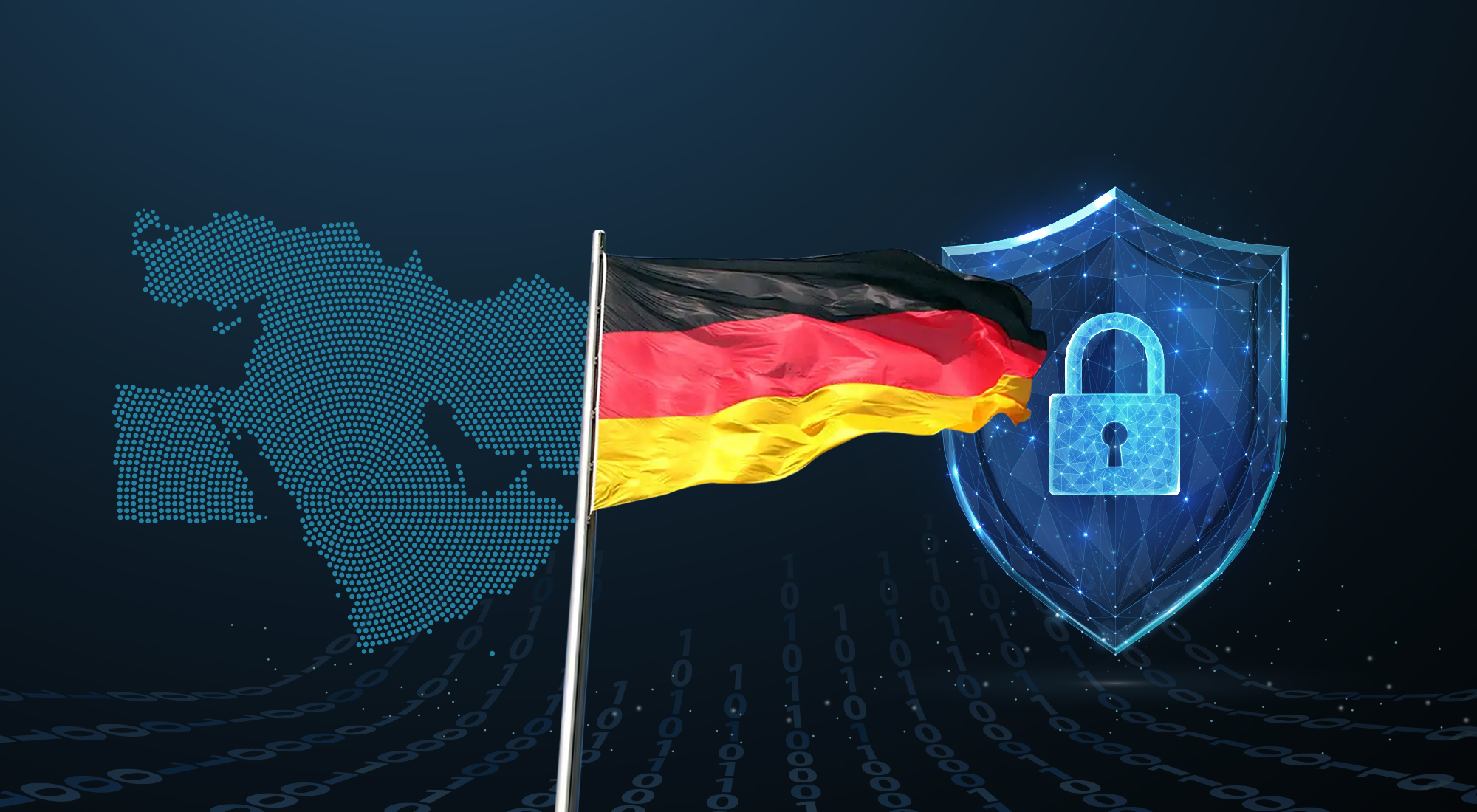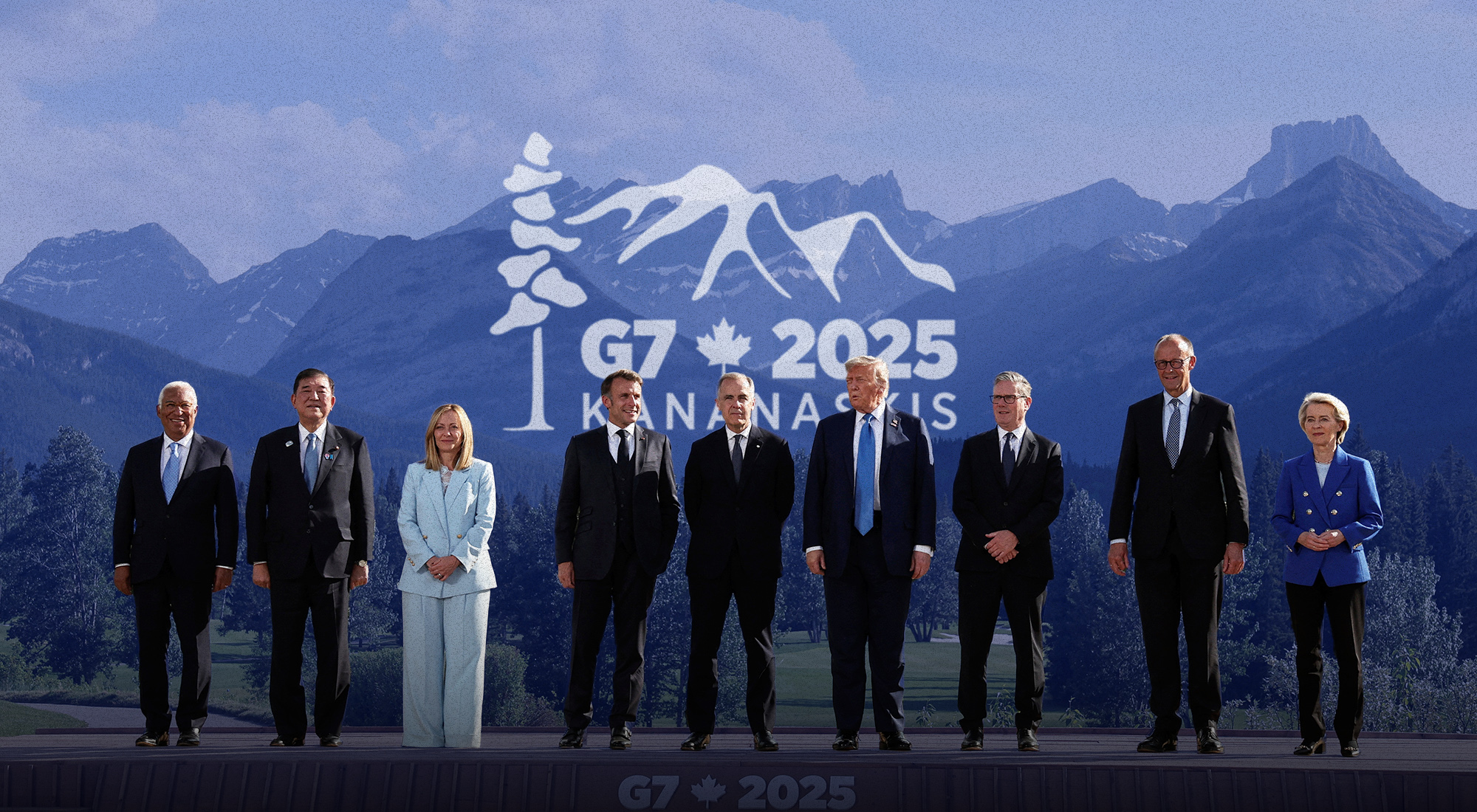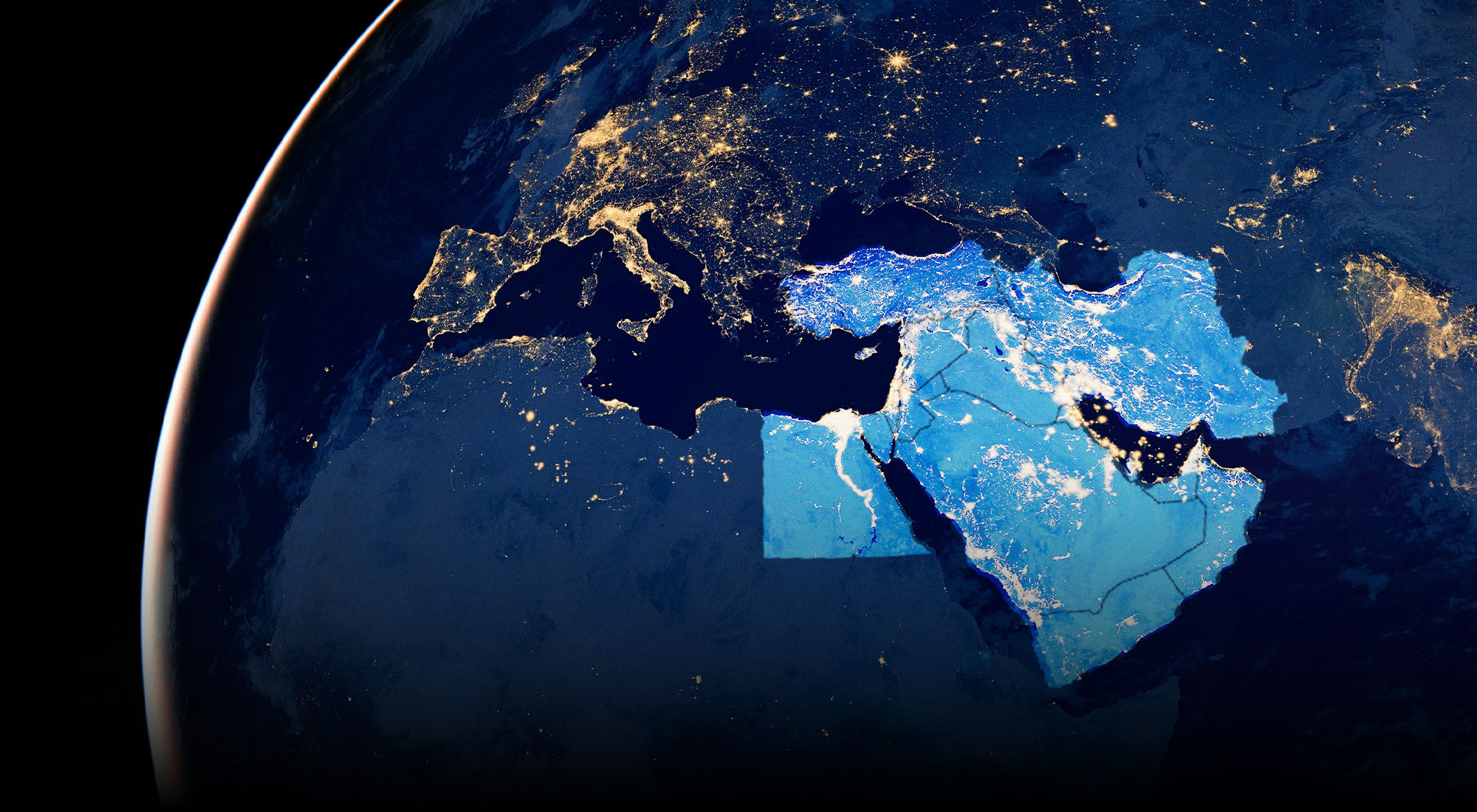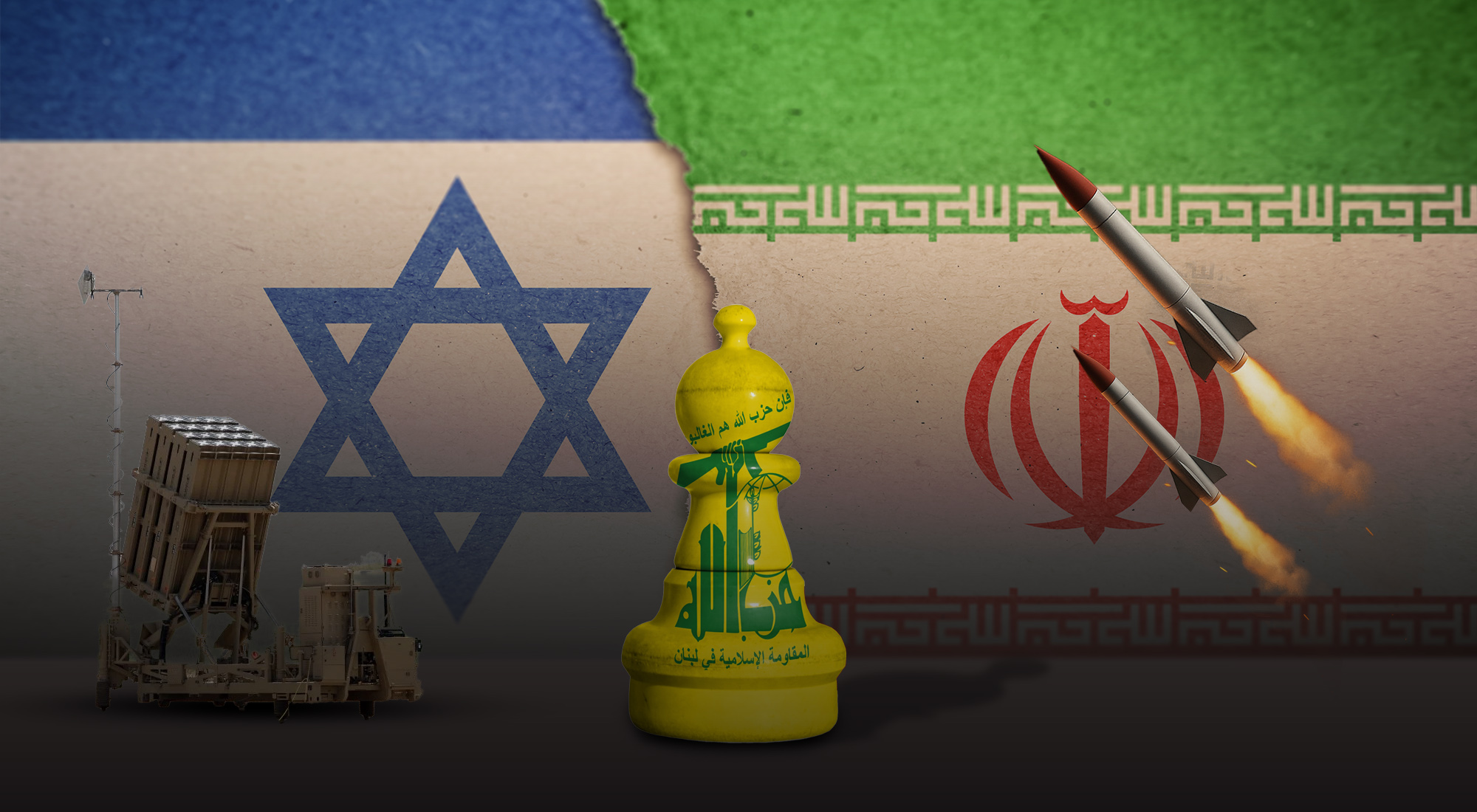In recent years, leading technology powers have been paying increasing attention to the Middle East, where the development of digital infrastructure is actively underway. More and more states are seeking to contribute to the formation of a regional cybersecurity landscape.
Germany is no exception. For Berlin, developing relations with the countries of the Middle East is the key to strengthening its own positions at the global level in the context of an intensified struggle for technological leadership. In this regard, it seems important to understand what guides Germany when building contacts in such a sensitive area as cybersecurity, and what obstacles it faces.
Germany and Cybersecurity: Some Touches
Germany belongs to the group of highly developed technological states and has a strong position in the field of cybersecurity. According to the latest measurements by the International Telecommunication Union (ITU), Berlin ranks 13th in the global cybersecurity rankings (7th among European Union states)[1]. Among the strengths of the national cyber system of Germany, experts include a balanced and constantly improved legislative framework (including rule-making work in related areas of cyber policy), as well as work to develop national human resources and technological potential.
Despite the fact that Germany ranks several positions below France, its main competitor in the Middle East (in the ITU rankings Paris ranks 9th and 5th, respectively; see Figure 1), in terms of the region, both countries have almost identical positions, which makes their opportunities in the Middle East are approximately the same.
Another advantage both for Berlin and Paris is that there is no intense rivalry between them: both countries are not aimed at completely ousting a competitor from regional markets, which allows them to effectively interact (in some cases jointly), while remaining in line with national interests.

Figure `1. Comparison of the cyber potentials of France and Germany. Based on: Global Cybersecurity Index. URL: https://www.itu.int/dms_pub/itu-d/opb/str/D-STR-GCI.01-2021-PDF-E.pdf (accessed: 10.05.2024).
Berlin in the Middle East: the digital aspect
The countries of the Middle East are important economic partners of Germany, and Berlin also strives to play a prominent role in ensuring the security of the region. And, given that the cybersecurity factor is becoming increasingly important in the system of relations between Middle Eastern states (both within the region and with external partners), the development of contacts in this area is quite natural.
It is important to note that Germany’s approach to developing cybersecurity cooperation with countries in the Middle East varies depending on the specific subregional focus. Let’s look at them in more detail.
Germany – Arab world. When interacting with Arab countries, Berlin strives for a multi-vector approach, combining economic, political and cultural cooperation. At the same time, the factor of digital security (in its broad interpretation) becomes one of the leading ones – specialized dialogue is built through regional organizations (Arab League, GCC)[2] and in a bilateral format; The exchange of best practices is also carried out at the German-Arab Digital Forum, held on a regular basis since 2019[3].
At the same time, over time, the focus of the dialogue is gradually shifting towards the Gulf monarchies. This is due to a number of reasons. Firstly, the Gulf monarchies have developed digital security systems, which creates a stable demand for technical cooperation, academic and labor mobility, and simplifies the exchange of advanced technological solutions. Secondly, the GCC countries, as part of their long-term reform strategies («Vision»), seek to expand the circle of external partners and give preference to powers from the “top” of international rankings, which includes Germany. Thirdly, one of the main areas of dialogue between Germany and the GCC is energy cooperation, within which the cybersecurity agenda fits organically[4]. The combination of these factors allows Germany to play an active role in the technology policy of the monarchies of the Gulf.
At the same time, Berlin finds it quite difficult to compete with global technology leaders (primarily the USA and China) – the latter occupy a large part of the core market and limit its expansion. Because of this, the most effective option for Germany remains to establish a dialogue in a bilateral format, without trying to achieve a dominant position in the markets.
Germany – Israel. Germany also attaches special importance to relations with the State of Israel (especially considering the factor of “historical responsibility”, which continues to influence national policy.
Berlin’s basic strategy regarding Israel’s security is enshrined in coalition agreements (for example, in the 2018 strategy[5]) and boils down to “increasing the level of security of life for the population of the Middle East by reducing conflict” and tension[6]. At the same time, the factor of digital security fits quite organically into this category – the parties are gradually increasing cooperation in the field of cyber defense in the energy[7] and financial[8] sectors, and also maintaining a high-level dialogue between specialized research centers[9].
On the other hand, the security dialogue between Germany and Israel has become increasingly difficult in recent months. The main reason is the ongoing escalation of the Palestinian-Israeli crisis. The view of German officials on resolving the crisis in Gaza is seriously different from the Israeli one, which leads to mutual public attacks and demotivates the parties to develop cooperation[10]. However, it is important to note that the cooling of relations is most likely temporary and will not affect the overall results of cooperation in the field of cybersecurity.
Germany – Türkiye. Türkiye, as Germany’s NATO ally and partner in the pan-European dialogue, occupies a special place in Berlin’s foreign policy strategy. The parties closely interact within the Alliance, and also develop cooperation in related areas of digital security – for example, in the field of artificial intelligence[11]. On the other hand, the government of Olaf Scholz is inclined to build political relations with Türkiye with considerable caution, including in the area of Ankara’s attempts to expand its zone of influence in the Middle East by force. In light of this, the overall potential for convergence in the field of digital security is significantly limited and is reduced mainly to joint actions to combat cybercrime, implemented under the auspices of the EU[12].
Germany – Iran. Relations between Berlin and Tehran are developing spasmodically: over the past decade, many contradictions have accumulated between the two countries, which run along the lines of the “Nuclear Deal” and key Middle Eastern crises – Syrian, Yemen, Palestinian-Israeli, etc.
Due to the ongoing disagreements between Berlin and Tehran, there is practically no cooperation between them in the digital space, and is reduced to rare non-public contacts between businesses and individuals. At the same time, the digital factor has a significant impact on mutual perception.
For example, German authorities are increasingly accusing Iran of destructive digital activities and indirect interference in the internal affairs of Berlin – the national intelligence community, for example, has repeatedly noted that the pro-Iranian hacker group «Charming Kitten» carries out (using prohibited software) systematic surveillance of Iranian dissidents living in Germany[13].
However, when it comes to assessing the situation in the Middle East, Berlin is keen to refrain from direct confrontation with Iran. In particular, he does not welcome the concept of a “Middle East NATO” promoted by the United States, based on the idea of confrontation with the Islamic Republic. On the contrary, from the point of view of Germany, the most effective functioning of the regional security system can be achieved only if the confrontation between Iran and the other poles of power is “smoothed out” [14]. A similar logic is projected onto cyberspace.
On the other hand, the prospects for “detente” in the digital space between Berlin and Tehran are currently not visible due to the reduction in the number of possible open dialogue formats in the field of security (for example, Iran was not invited to the Munich Security Conference in 2024[15]), and also a general trend towards criticism of Tehran’s regional policy by the EU. In this context, relations between the two countries will remain in their previous positions in the near future.
Cyber power of a «united Europe»
Despite the fact that in the Middle East Berlin seeks to realize national interests mainly at the expense of its own resources, recently there has been a tendency to use the total technological and political potential of the European Union for the same purposes. For example, Germany initiated the raising of relations between the EU and the Gulf states to the level of strategic partnership (with the inclusion of cybersecurity among the priorities of cooperation), which was successfully implemented in 2022[16].
In addition, Berlin is systematically increasing the volume of interaction with Middle Eastern partners (with the exception of Iran) through public-private partnerships, encouraging the entry of national IT businesses into the Middle Eastern markets (which is in line with the spirit of the national cyber strategy[17]).
It is important to emphasize that the Middle East is a profitable destination for PPP development. According to the consulting agency «Markets and Markets», by the end of 2023 the total size of the regional cybersecurity market was valued at $14.8 billion, and its growth will continue over the next few years[18]. Considering that expanding cooperation in the field of high technologies is a common priority for all EU states, it is likely that Germany will use this factor to establish specialized cooperation.
On the other hand, Berlin’s ability to use the EU’s common potential to achieve the goals of national foreign policy is seriously limited due to attempts by other large EU members (France, Spain, Italy) to play out similar combinations, but in their favor.
In addition, the situation is complicated by the EU’s lack of a comprehensive approach to the development of cooperation in the field of cybersecurity with the states of the Middle East – its development continues, but under the influence of a number of objective factors (for example, the escalation of the Palestinian-Israeli conflict) requires rethinking.
Conclusions
In general, it can be stated that Germany is increasingly joining the race for the role of a significant supplier of technology and guarantor of cybersecurity in the Middle East. Berlin combines the tools of bilateral interaction and the resources of the European Union available to it, which allows it to effectively promote national interests while avoiding confrontation with both the main regional players and competing states.
On the other hand, Germany’s approach to cooperation with the countries of the Middle East has not yet received a clear prioritization: Berlin maintains contacts at the working level with most powers (with the exception of Iran), but has not yet brought them to the level of strategic partnership – although there have been individual steps in this direction undertaken in dialogue with the Arabian monarchies. In addition, the complex and difficult to predict geopolitical situation in the Middle East leaves its mark on the pace and dynamics of specialized cooperation.
It is appropriate to assume that Germany’s approach will not undergo significant changes in the near future: Berlin will remain a “middle player” in the regional technology market, but will be able to strengthen existing ties and will not be drawn into the “technological battle” for the region between the United States and China.
[1] Global Cybersecurity Index 2020 // ITU. URL: https://www.itu.int/dms_pub/itu-d/opb/str/D-STR-GCI.01-2021-PDF-E.pdf (accessed: 10.05.2024).
[2] See e.g.: Partnerships and Perspectives of Arab-German Cooperation // Ghorfa Arab-German Chamber of Commerce and Industry. 16.01.2016. URL: https://ghorfa.de/wp-content/uploads/2016/01/AGEduGuide2015_Ansicht_02-02_CoE_MR.pdf (accessed: 16.05.2024).
[3] The 1st German-Arab Digital Forum. URL: https://ema-germany.org/wp-content/uploads/2019/09/Programm_Dt-Arabisches-Digitalforum.pdf (accessed: 16.05.2024).
[4] HE the GCCSG: The Development of Work and Cooperation with Countries and Organisations in the Field of Cybersecurity is a Priority for the GCC Member States // GCC. 16.02.2024. URL: https://gcc-sg.org/en-us/MediaCenter/NewsCooperation/News/Pages/news-2-16-5.aspx (accessed: 16.05.2024).
[5]Deutschlands Zukunft gestalten // Bundestag. URL: https://www.bundestag.de/resource/blob/194886/696f36f795961df200fb27fb6803d83e/koalitionsvertrag-data.pdf (accessed: 10.05.2024), in German.
[6] Ibidem.
[7] Israel, Germany Partner To Enhance Cybersecurity in Energy Sector // The Media Line. 09.05.2024. URL: https://themedialine.org/mideast-daily-news/israel-germany-partner-to-enhance-cybersecurity-in-energy-sector/ (accessed: 10.05.2024).
[8] Israeli-German Relations in the Fields of Energy, Infrastructure and cyber | Ministry of Energy and Infrastructure // Government of Israel. 08.01.2024. URL: https://www.gov.il/en/pages/israel-germany (accessed: 13.05.2024).
[9] ATHENE launches German-Israeli research cooperation on cyber security // ATHENE. 07.05.2024. URL: https://www.gif.org.il/2024/05/07/athene-launches-german-israeli-research-cooperation-on-cyber-security-in-the-energy-sector/ (accessed: 13.05.2024).
[10] Germany’s crackdown on criticism of Israel betrays European values // Al Jazeera. 30.04.2024. URL: https://www.aljazeera.com/opinions/2024/4/30/germanys-crackdown-on-criticism-of-israel-betrays-european-values (accessed: 13.05.2024).
[11] Türkiye and Germany to Cooperate in the Field of Artificial Intelligence // Digital Transformation Office. 22.08.2019. URL: https://cbddo.gov.tr/en/news/4385/turkey-and-germany-to-cooperate-in-the-field-of-artificial-intelligence (accessed: 10.05.2024).
[12] Supporting Türkiye for a Safe Cyberspace // EEAS. 20.12.2022. URL: https://www.eeas.europa.eu/delegations/t%C3%BCrkiye/supporting-t%C3%BCrkiye-safe-cyberspace_en?s=168 (accessed: 10.05.2024).
[13] Germany says «Charming Kitten» hackers target Iran dissidents // DW. 10.08.2023. URL: https://www.dw.com/en/germany-says-charming-kitten-hackers-target-iran-dissidents/a-66493687 (accessed: 13.05.2024).
[14] Prokhorov K. Middle East policy in Germany at the present stage // RIAC. 20.12.2023. URL: https://russiancouncil.ru/analytics-and-comments/columns/sandbox/blizhnevostochnaya-politika-germanii-na-sovremennom-etape/ (accessed: 11.05.2024), in Russ.
[15] Russia, Iran Not Invited to Munich Security Conference // Voice of America. 07.02.2024. URL: https://www.voanews.com/a/russia-iran-not-invited-to-munich-security-conference-/7479025.html (accessed: 11.05.2024).
[16] GCC: EU unveils Strategic Partnership with the Gulf // European Commission. 18.05.2022. URL: https://ec.europa.eu/commission/presscorner/detail/en/IP_22_3165 (accessed: 13.05.2024).
[17] Cyber Security Strategy for Germany // BMI. URL: https://www.bmi.bund.de/EN/topics/it-internet-policy/cyber-security-strategy/cyber-security-strategy-node.html (accessed: 13.05.2024).
[18] Middle East Cyber Security Market // Markets and Markets. URL: https://www.marketsandmarkets.com/Market-Reports/middle-east-cyber-security-market-121119697.html (accessed: 13.05.2024).








